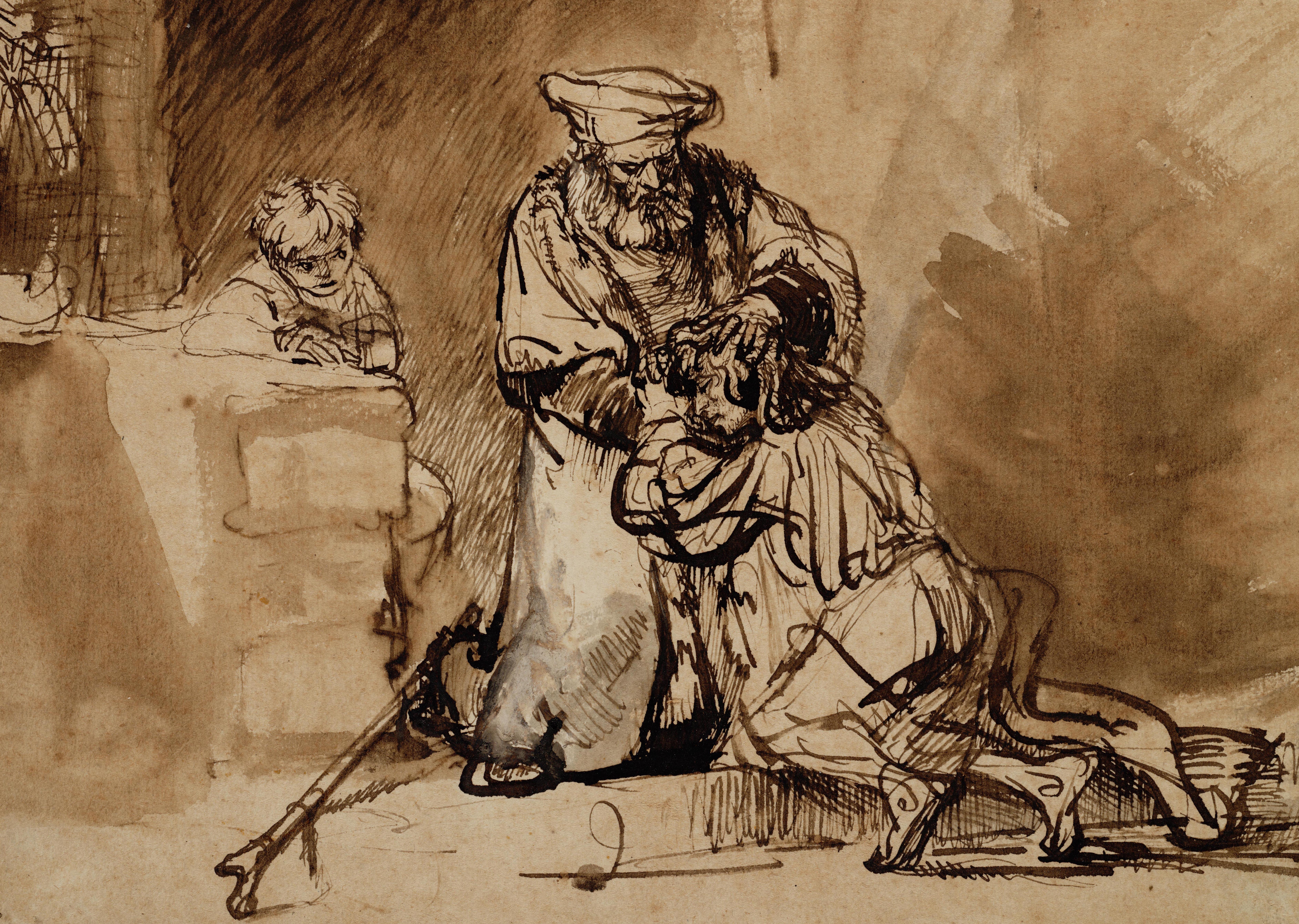This is the fourth in a 5-part series of articles which undergird all of the content we publish on hesed.com.
In our last article, We Swear Allegiance, we noted how in response to Jesus’ great love for us and His position of authority as king over all creation, we have cast ourselves upon the sacrifice of Christ as our only hope, and we have sworn allegiance to Him, our redeemer and our king.
As the servants of our king, we will obey His command to go into all the world and make disciples of all nations (Matthew 28:18-20).
In the words of the Steve Fry song, “We lay down our lives that the triumph of Christ may resound in the earth!” (We Lift Up A Shout, Steve Fry. Steve Fry. Sparrow Records, 1986.)

COMPELLED BY LOVE
For those of us who have already made the decision to cast our lives upon the sacrifice of Christ and swear allegiance to Jesus our king — and have thus begun to experience His love at a greater depth — we present a question: what does His love compel us to do?
2 Corinthians 5 teaches us that the normative response to Christ’s love is to persuade others to be reconciled to God. The greater one’s experience of God’s love, the more one will sense the urgency to make Christ known in all the world.
Compelled by Christ’s love, we find our reason for being in devoting ourselves to the completion of an unfinished task. We find our hearts aflame to be the vessels through which God makes his appeal to a people who are desperate for his love, for his hesed.
Compelled by Christ’s love, we find our reason for being in devoting ourselves to the completion of an unfinished task. #worldmissions
In the words of Alan Johnson, a Live Dead church planter working among the Muslim residents of Bangkok, Thailand, “the sheer weight of a glorious, living God who loves each one of these millions He uniquely created compels me to respond.” (Live Dead: The Journey, Springfield, MO: Influence Resources, 2013, Kindle edition, Loc 1823).
WHAT DOES IT MEAN TO BE COMPELLED?
What does it mean to be compelled? Typically, we think of the word “compel” as being a synonym for “force.” But in the case of the Greek word which is translated “compel” in the verses above, that would miss an important nuance. The Greek word for “compel” — suneko — carries the sense of being out of other options. In other words, the one who has experienced Christ’s love has no other alternative but to make Him known.
Let’s dive a little bit deeper into the meaning of “compel”:
The basic meaning of suneko is to hold something together so that it doesn’t fall apart. The general sense is to confine or secure, to constrain, to hold something fast, to enclose.
In the New Testament, the word is used in one of two ways:
1. To enclose or close: in Luke 22:63, the word is used in the sense of being held prisoner. The idea of being surrounded or hemmed in is denoted.
2. To rule: in Luke 8:37, it refers to being gripped (by fear); in Acts 18:5, we’re told that Paul completely devoted himself to (or more literally, allowed himself to be claimed by) the task of preaching; here in 2 Corinthians 5:14 as well as in Philippians 1:23, the idea of being claimed and totally controlled is meant.
Kittels Theological Dictionary of the New Testament (Volume VII, pages 877-885) says this about 2 Corinthians 5:14: “… on the basis of Christ’s death the only natural decision for (Paul), as for all other believers, is no longer to live for self but to live for Christ. This is how Paul defends his conduct before the Corinthians here; Christ’s love claims him in such a way that in relation to others he can no longer exist for himself …”
What encloses me? What holds me prisoner? What surrounds me and hems me in? What rules me? What grips me? What have I devoted myself completely to? What have I allowed myself to be totally claimed by?
If I want to be Christ’s ambassador, the beginning of the mission lies not in techniques, but in a deeper understanding of God’s love for me and others. #worldmissions
If I want to be Christ’s ambassador, carrying His message of reconciliation to the world, the beginning of the mission lies not in techniques, strategies, trying harder, etc., but in a deeper understanding of God’s love for me. And in a deeper understanding of God’s love for others.
And that experience of Christ’s love motivates me (compels me, gives me no alternative but) to love others, allowing myself to be gripped and claimed and compelled by that love, by that hesed, to serve others.
Because He died for all.
And he died for all that all would be given the opportunity to live for Him and in the power of His life.
As we contemplate God’s deep love for us and for the world, we find our hearts aflame.
WHAT IS THE MESSAGE OF RECONCILIATION?
Our hearts are aflame with the urgency to make Christ known, because of the nature of the message we have been given — the message of reconciliation.
What is that message? It is a four-fold message: a message of new life instead of old, of friendship instead of hostility, of forgiveness instead of condemnation, and of allegiance to Jesus instead of ourselves.
1. The message we have been given tells us that a door to new life has been opened to all. “If anyone is in Christ, he is a new creature; the old things passed away; behold, new things have come.”
The particular Greek word which is translated “new” in 2 Corinthians 5:17 — kainos — does not signify new in terms of the amount of time something has existed. Instead, it is used to refer to a difference in terms of quality. That which is “new” is superior to, and should replace, what is “old.” It’s different than what we are accustomed to. It is of better value.
The message we have been given offers to the unbeliever the promise of new life, of a better quality of life, of a life that is far superior to that which they have experienced up until now. Our message to the unbeliever is that their old life can be gone. Their old life can pass away! It can come to an end! Their life can be new!

As we remember our old life and its futility and we think of those who still do not know Christ, whose lives are still “old” in effect, we are moved with compassion for them, and our hearts are aflame with the message of new life for old.
2. The message we have been given tells us that God’s love for us is so deep that he has acted dramatically in history to restore relationship with mankind.
God has reconciled himself to the world as the first step in the process on the journey to the new life he offers. This reconciliation happened once in the past (it was “through Christ” and “in Christ” — acknowledging the death of Christ as this reconciliation’s source and foundation) and it happened not just for us, but for all (we know this because the passage tells us that God is not counting the world’s sins against them).
The Greek family of words which are translated by our words “reconciled,” “reconciling,” and “reconciliation” — all based on the root katallasso — refer primarily to a change from enmity or hostility to friendship.
And so God took action — he reconciled himself to us. Through the death of Christ, he ended the hostility between himself and mankind. Based on Christ’s sacrifice, God’s posture toward us — and toward the entire world — is now one of friendship. And he took that action before we showed any sign of desiring relationship with him. It was not we who initiated the action. There was nothing in us that would lead God to reconcile himself to us, except that we were the objects of his unfathomable love. As Romans 5:10 tells us, we were reconciled to God while we were his enemies.

As we consider the intimacy with Jesus our new life has afforded us and think of those who are still without that life-giving relationship with God, we are moved with compassion for them, and our hearts are aflame with the message of friendship with God instead of hostility.
3. The message we have been given tells us that the problem of sin (the barrier between the world and God) has been decisively addressed.
Our passage tells us that God does not count the world’s trespasses (or sins) against them.
After the cross, there remains only one sin that keeps a person from reconciliation to God — the sin of unbelief, the sin of not casting ourselves upon the sacrifice of Christ as our only hope, the sin of not swearing allegiance to Jesus.
As we continue to be stunned by the forgiveness God has granted us, our hearts are aflame with the message of forgiveness instead of condemnation.
4. The message we have been given tells us that only one thing remains for reconciliation between God and man to be complete — a person must reconcile him/herself to God. Just as God has ended the hostility from his side and taken up a posture of friendship toward us, so too a person must end the hostility from their side and take up that posture of friendship toward God. A person must swear allegiance to Jesus the king.
As 2 Corinthians 5:15 says, “He died for all, so that they who live might no longer live for themselves, but for Him who died and rose again on their behalf.”
As we are reminded of God’s call on our lives and renew our own commitment to Christ, our hearts are aflame with the message of allegiance to Jesus instead of ourselves.
And as we consider the full content of the message of reconciliation and the urgency we sense to make Jesus known in all the world, let’s contemplate the words of this Scott Wesley Brown song:
To think that God seeks after men
We have known a mercy beyond compare
We received the call that bids us there
Into the world
Let us go with boldness
Into the world
As a holy people
Into the world
With the healing of his love
Into the world
Let our hearts take courage
Into the world
For the Lord is with us
Into the world
We must take the passion
Into the world
Let us hear the call as his ambassadors
To think that God makes his appeal through us
The cross we carry that brings to life
Our hearts surrender to the cause of Christ
Into the world
Let us go with boldness
Into the world
As a holy people
Into the world
With the healing of his love
Into the world
Let our hearts take courage
Into the world
For the Lord is with us
Into the world
We must take the passion
Into the world
“Into The World,” from Scott Wesley Brown’s 1991 album The Passionate Pursuit
THIS MESSAGE OF RECONCILIATION HAS BEEN ENTRUSTED TO US
Not only are our hearts aflame because of the nature of the message of reconciliation, but our hearts are aflame with the urgency to make Christ known because we have been granted stewardship of the message.
We who have cast ourselves on His sacrifice and sworn allegiance to Jesus our king, we who have embraced that opportunity to live fully for Him, have been given the ministry of reconciliation. And we are compelled (surrounded and governed and claimed completely) to declare, through word and deed, the message of reconciliation.
2 Corinthians 5:18-20
We are Christ’s ambassadors and His message of reconciliation has been entrusted to us. When a leader gives his/her ambassador a message to deliver to the leaders of another country, it is as if the leader is delivering his/her message through the ambassador. And the one paramount priority for the ambassador is to deliver the leader’s message with accuracy and with the same passion that the leader would have if conveying the message in person.
WILL WE BE FOUND TRUSTWORTHY?
Are we delivering God’s message of reconciliation accurately? Are we delivering it with the same passion that God would have as we make our appeal, as we “beg” others to be reconciled to God?
1 Corinthianss 4:1-2 tells us that we are “stewards of the mysteries of God” and that “it is required of stewards that one be found trustworthy.”
Will you and I, the stewards of the ministry and word of reconciliation — this great message of new life, of God’s dramatic action, of God’s forgiveness, and of Jesus’ enthronement as king over all creation — be found to be trustworthy stewards of God’s mysteries? Will we be found faithful?
In the next and final article in this series, Reshaping Our Wineskins, we will expand on how effective strategy in outreach helps us to be faithful in our stewardship of the message of reconciliation.

Leave a Reply